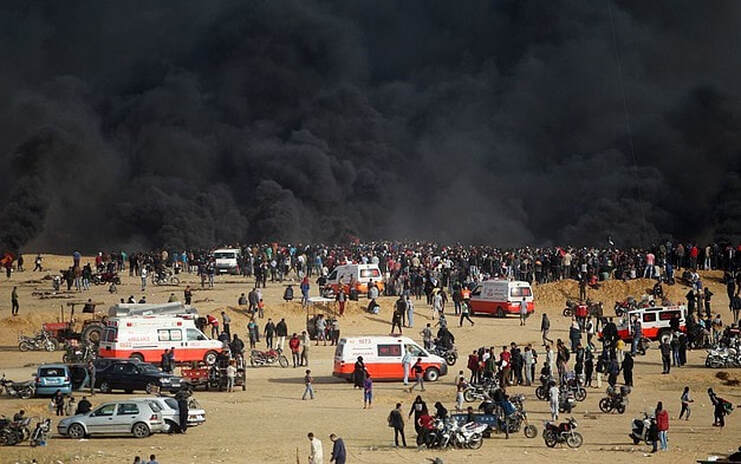|
|
|
The territorial realization of the Israeli state produced a new category of stateless people: Palestinian refugees. Those expelled from their homes, villages and land during the onset of the Nakba (catastrophe): a large scale ethnic cleansing process executed in 1947-48 Palestine, has resulted in the creation of one of the largest and longest standing protracted refugee communities world-wide today. The unresolved question of Palestinian displacement raises important considerations in, what scholars of redress have named, an era of settler colonial reparations. One line of inquiry that remains relevant for thinking about the future of redress to Palestinian displacement is the following: How did an Indigenous Palestinian society with historical ties to land come to be internationally governed as refugees external to the land? Further, how might we think about the history of redress and humanitarianism in the early years of Palestinian displacement as one tied to a broader genealogy of race and settler colonial formations in Palestine?
My article, ‘1948 to 1951: The racial politics of humanitarianism and return in Palestine‘, engages with these questions by turning to a set of UN records and progress reports issued in the early months of Palestinian expulsion. Examining the observations and recommendations put forth by Count Folke Bernadotte – the first UN appointed Meditator on Palestine, I consider why, despite his recommendations for the immediate return of Palestinian refugees, the UN folded a land-based Indigenous sovereignty question into a humanitarian ‘solution’ that has now stretched the course of seven decades.
The significance of this inquiry is that this wave of Palestinian displacement took place at the onset of a post-world war II era – a time of consolidated nation-state building and the emergence of citizenship regimes. How ideas about indigeneity and refugeehood came to form and be recognized at this historical moment has important implications for questions of redress, present and future. Centering the struggle for return as a locus point for broader claims to justice in Palestine, I show how we might read these key decisions made between 1948-1951 as part of, and within a wider racialized process of ontological negation formed at the intersection of humanitarianism and settler colonial governance. Further, I argue that the persistence of Palestinian claims to return at the level of form and practice, compels us to understand return not only as a means for legal redress or a claim bound to the epistemic regime of human rights discourse but as a radical reclamation of the human. This article is part of a recently published special journal issue of Oñati Socio-Legal Series, which emerges from a workshop at the Oñati International Institute for the Sociology of Law entitled, ‘Governing the Political: Law and the Politics of Resistance‘ (December 2020). It also emerges out of my monograph (under preparation), Temporalities of Return: Race, Forced Displacement and Claims to Otherwise in Palestine.
Image credit: Photo taken during the ‘Great March of Return’ in Gaza (Taken by WHO and reprinted in the United Nations Office for the Coordination of Humanitarian Affairs).
Blog post by Shaira Vadasaria, University of Edinburgh, UK
Explore other relevant Identities articles:
Vulnerability as a politics of decolonial solidarity: the case of the Anarchists Against the Wall Kashmir and Palestine: archives of coloniality and solidarity Kashmir and Palestine: itineraries of (anti) colonial solidarity “Their wounds are our wounds”: a case for affective solidarity between Palestine and Kashmir
0 Comments
Your comment will be posted after it is approved.
Leave a Reply. |
|
Explore Identities at tandfonline.com/GIDE |
|
The views and opinions expressed on The Identities Blog are solely those of the original blog post authors, and not of the journal, Taylor & Francis Group or the University of Glasgow.


